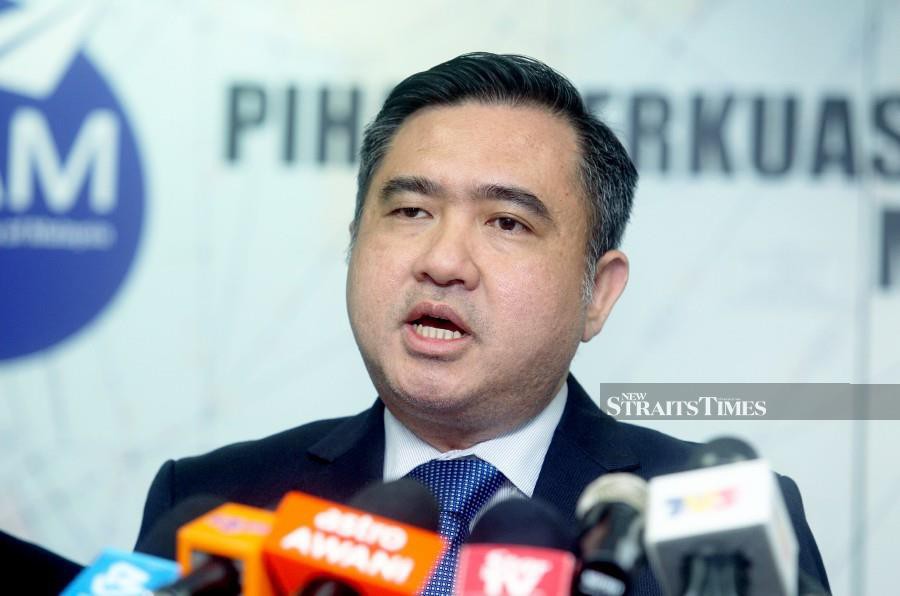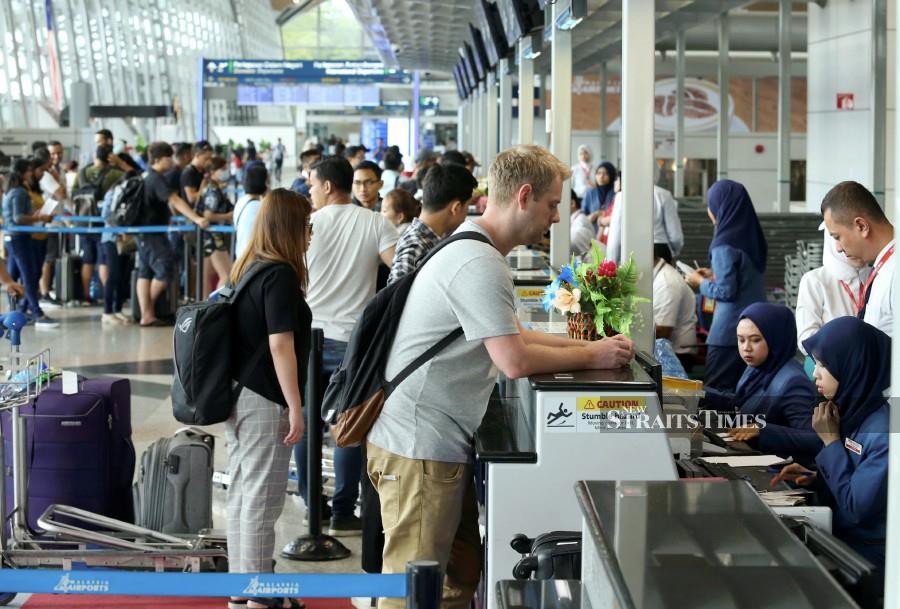PUTRAJAYA: Malaysia will announce a revised rate for the air navigation facility charges (ANFC) early next month, said Transport Minister Anthony Loke.
He said the revision of the overflight charges would be necessary for the Civil Aviation Authority of Malaysia (CAAM) to increase its revenue and improve its operation.
“ANFC is one of the major sources of revenue for any civil aviation authority. We will reveal the charges to increase CAAM’s revenue.”
He said the charges would be applicable for domestic and foreign airlines flying through Malaysia’s airspace.
Loke said the government would give notice to airlines on the charges once details were finalised.
“There are thousands of flights daily in our airspace. Any country will impose the airspace charges,” he said.
He said the country’s over-flight charges were low, which prompted the government to revise it.
“This will potentially increase CAAM’s revenue and help it to rectify the issues raised by the United States’ Federal Aviation Administration (FAA).
“I’m sure airlines understand there is a need to review the charges to ensure our civil aviation and air traffic controllers are more efficient and regain international standard.”

He said the revised charges were also aimed at making CAAM financially independent.
FAA downgraded CAAM to Category 2 from Category 1 due to the latter’s alleged failure to meet the safety standards set by the International Civil Aviation Organisation (ICAO).
The decision was made after FAA conducted a reassessment of CAAM under the International Aviation Safety Assessment programme in April, followed by discussion of the audit results to the authority in July.
In Category 2, Malaysia joins Bangladesh, Ghana, Costa Rica, Thailand and Curacao.
CAAM has requested FAA to conduct a reassessment within the next 12 months to restore its Category 1 status.
“We give ourselves 12 months to rectify the issues. We do not know when FAA will come to audit. We will be confident to invite FAA to reaudit us.”
Asked whether CAAM could reveal the issues, he said: “This is classified information. We will do everything possible to rectify the issues.”
He said one of the issues highlighted by FAA was that CAAM did not pay its inspectors or personnel “sufficiently”.
“CAAM operates on a budget of RM350 million, partly from the government and charges collected by CAAM. If we want to upgrade the remuneration packages, we need to plan to increase the operational budget above RM350 million,” he said, adding that CAAM collected only about RM120 million in revenue now.
He said CAAM’s remuneration packages were not attractive enough to recruit and retain qualified technical personnel, such as technical crews and pilots.
“Although CAAM was corporatised last year, it has not been financially independent.
“The pay scale of its staff is tied up with the government’s pay scale,” he said.
Loke said the Transport Ministry intended to separate CAAM from the government’s pay scale in the near future.
“We have discussed with the Public Service Department (PSD) to speed up the remuneration process.”
He said the ministry would write to PSD as CAAM needed to be separated from the government immediately to become a fully statutory body.
However, he said, the Finance Ministry and PSD needed to ensure CAAM could be run and become financially independent.



